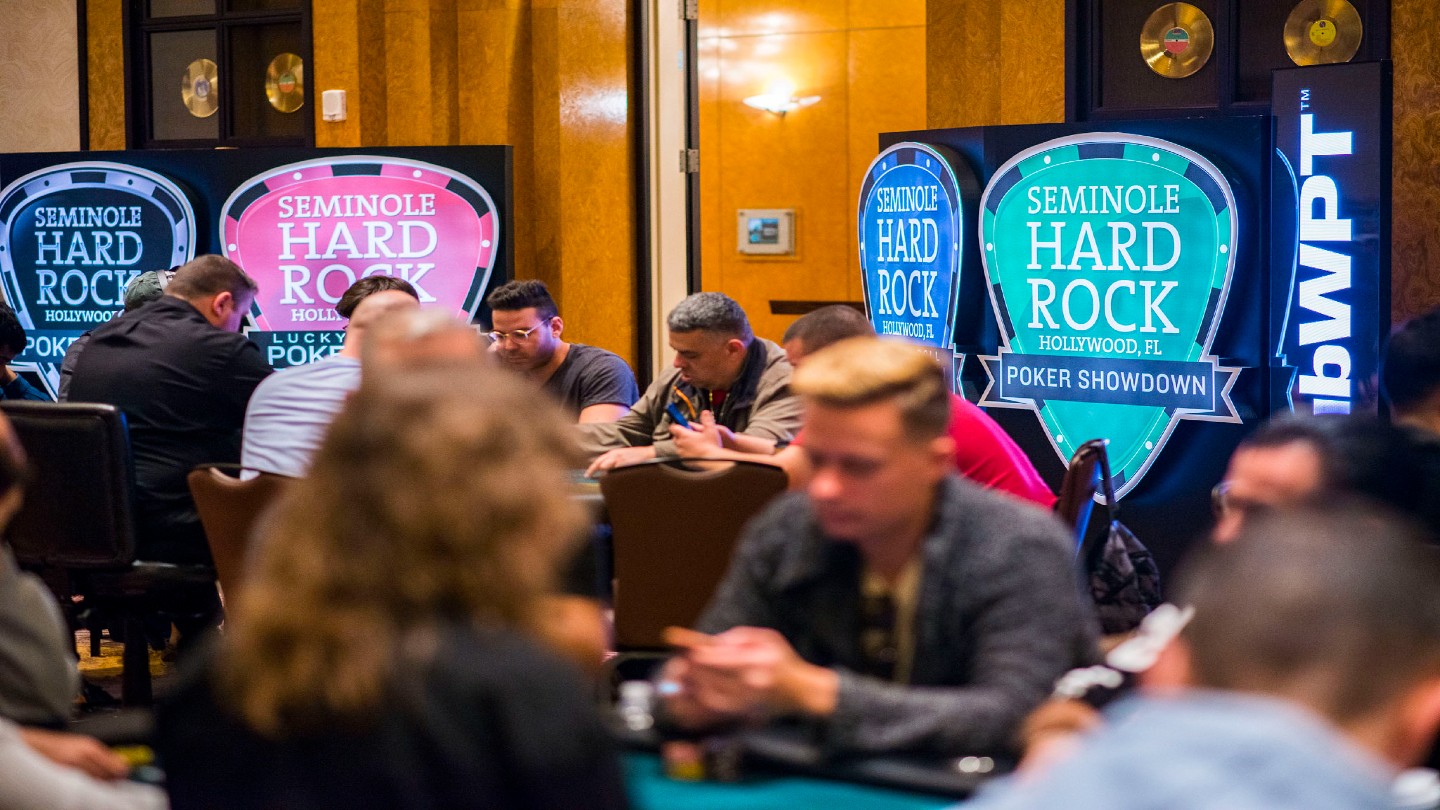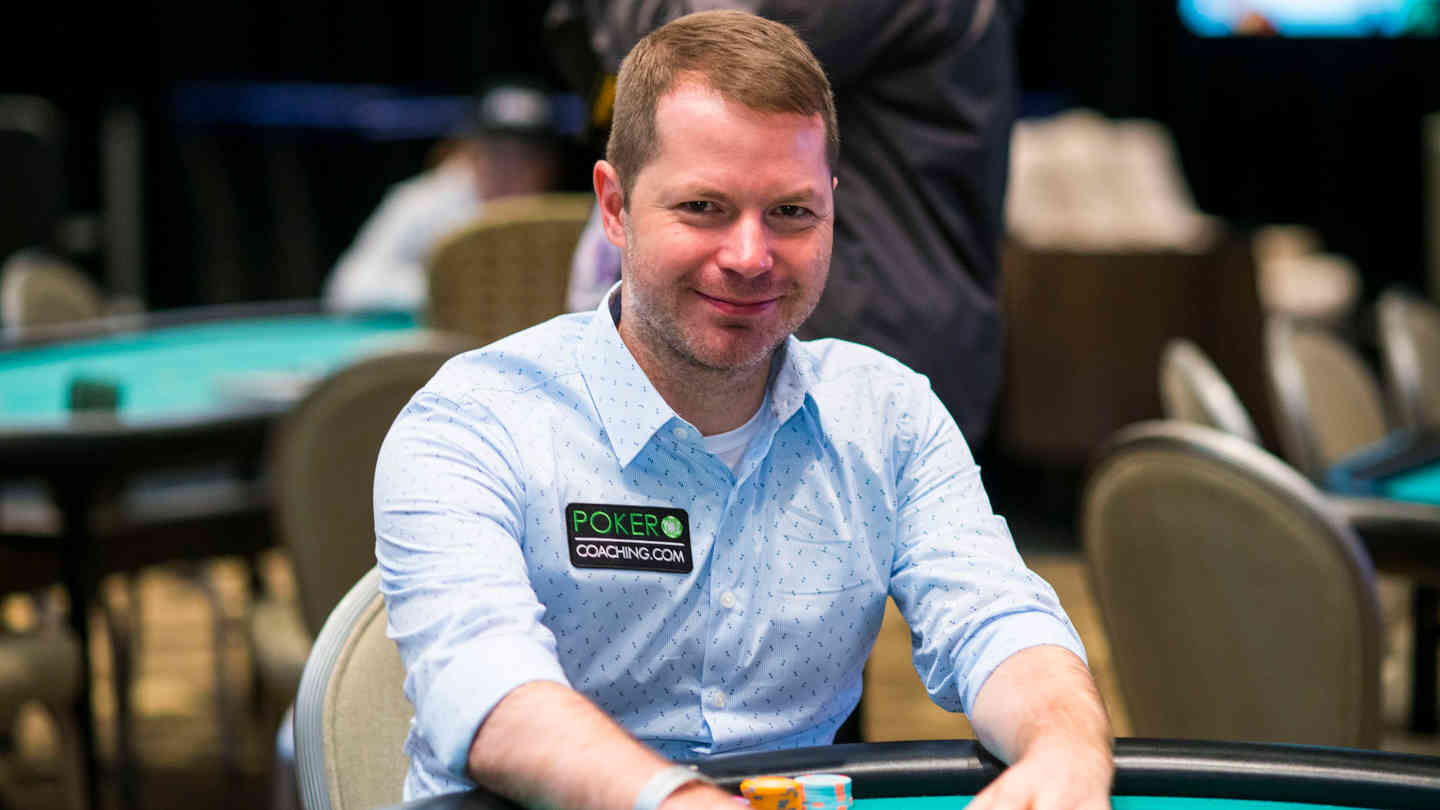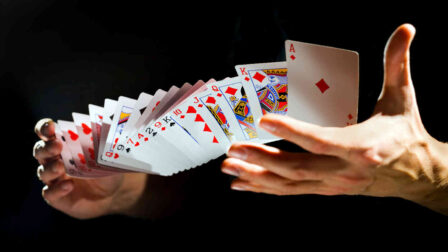Poker Tournament Strategy – Top 10 Tips for Winning Tournaments More Often
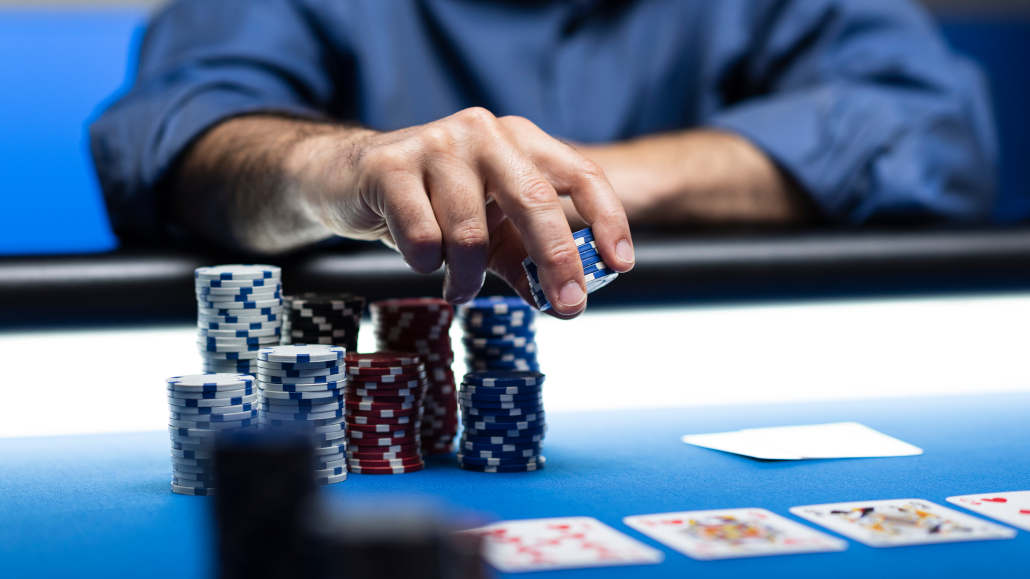
There are few better feelings in poker than winning a tournament, but with so many players in the field, actually coming out on top is extremely difficult.
To regularly make final tables and book wins in tournaments, you will need a solid poker tournament strategy to adhere to.
There are countless factors to keep in mind when playing live and online poker in the modern era, so I decided to give you a few tips in the right direction. Here are the main MTT poker tips we will cover in this article:
- Tip #1 – Play Tight Early On
- Tip #2 – Raise Often & Raise Small
- Tip #3 – Defend Your Big Blind Often
- Tip #4 – Continuation Bet Less Often
- Tip #5 – Consider the Future Streets
- Tip #6 – Play More Hands in Later Levels
- Tip #7 – Use Money and Final Table Bubble to Your Advantage
- Tip #8 – Learn About ICM
- Tip #9 – Study Preflop Charts Regularly
- Tip #10 – Play the Right Tournaments
These tips will not make you into a crusher overnight but are great general pointers on approaching MTT poker games and avoiding costly mistakes.
Tournament Strategy Tip #1 – Play Tight Early On
You can't win a poker tournament on the first level, but you can most certainly get busted. This means you should play the early and late stages significantly differently.
Early in the tournament, the blinds are low, there are usually no antes to speak of, and the stacks are fairly deep. What’s even more, there are many fish still in the field.
All of this means that stealing the blinds is not worth much, while getting into big confrontations with a wide range of hands will often leave you at a significant disadvantage.
Early levels of a poker tournament are a great time to play fairly snug, feel out your opponents, and figure out how everyone is playing.
This does not mean you should not play hands, but you will want to play it more like a cash game and less like a tournament because the overall structure resembles a cash game.
By playing fairly tight, you will be able to exploit the tendencies of recreational players to play too many hands, limp into pots, and call raises with a wide range of hands you will often dominate.
You will start slowly accumulating chips and avoiding being on the wrong end of cooler situations by often having the better-starting hand.
Poker Tournaments Tip #2 – Raise Often & Raise Small
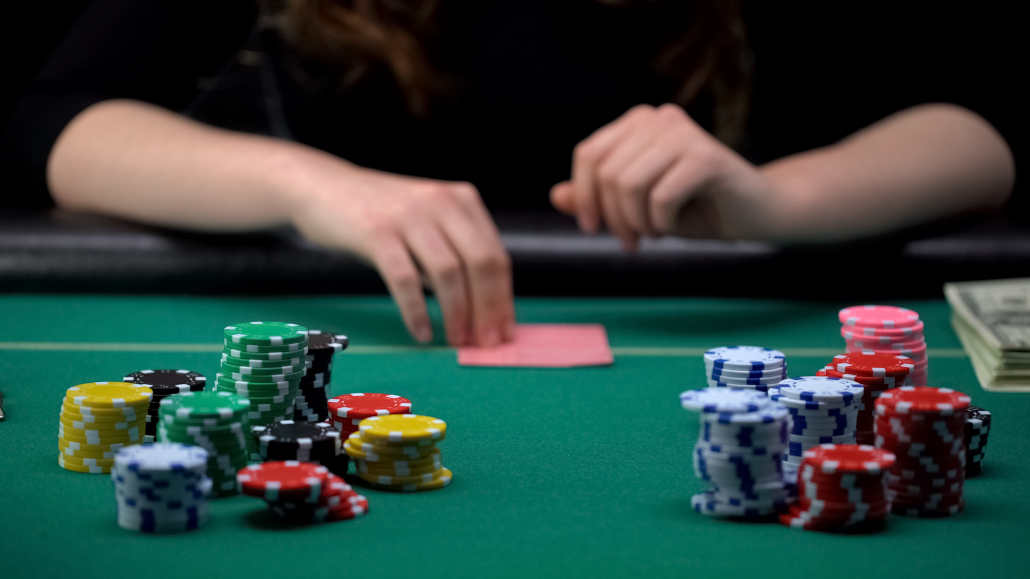
When you do decide to enter a pot in Texas Holdem, whether you are in the early or late levels, you will want to do so for a raise almost every time.
If you are first into the pot, there is rarely a justifiable reason to limp in. A raise gives you a chance to win the blinds and antes without any risk.
Making your raise small will give you that same chance without having to risk more than you have to.
This is why you will see most tournament pros make their raises 2x or 2.2x the big blind.
There was a tendency to raise to 3x the BB for many years, but if you consider the defending ranges people use, a smaller raise is generally a better idea. It will usually get rid of the same hands and get called by the same hands.
By often raising in late positions and raising small, you will get to pick up some pots and get to play other pots in position against big blind defenders.
In these scenarios, you will have the advantage of having position, and if you play later streets right, you will be picking up even more chips.
MTT Tip #3 – Defend Your Big Blind Often
I just talked about attacking the big blind with a wide poker range and small raises. Now I want to address a little about defending your big blind against just such raises.
Your poker tournament strategy should include a lot of play from the big blind, as you will want to fold your big blind very rarely when faced with a single raise from later positions.
In fact, many players these days defend nearly 100% of their hands in the big blind against a button raise, but it is still perfectly OK to fold the weakest of hands.
Given the tendency of players to raise small, defending a lot of hands makes perfect sense as the big blind gets amazing pot odds to make such calls.
By splitting your defending range between calls and 3-bets, you will give yourself every chance to either win the pot preflop or realize your equity on later streets.
Hands with a lot of playability, such as T8s, 97s, and 86s, are obligatory calls. In fact, most suited hands give you enough equity to either call or 3-bet profitably.
When it comes to off-suit hands like Q6 or T5, you will want to be more careful and consider the opponent who is raising. You’ll also need to account for any other calls that may have happened before you.
Typically speaking, suited and connected hands will play well in multi-way situations. Hands with a high card will be enough to defend heads-up.
Finally, be careful about defending your big blind against early position raisers. Their range will typically be stronger, and you will need to have stronger hands to have enough equity against such ranges.
Tournament Strategy Tip #4 – Continuation Bet Less Often
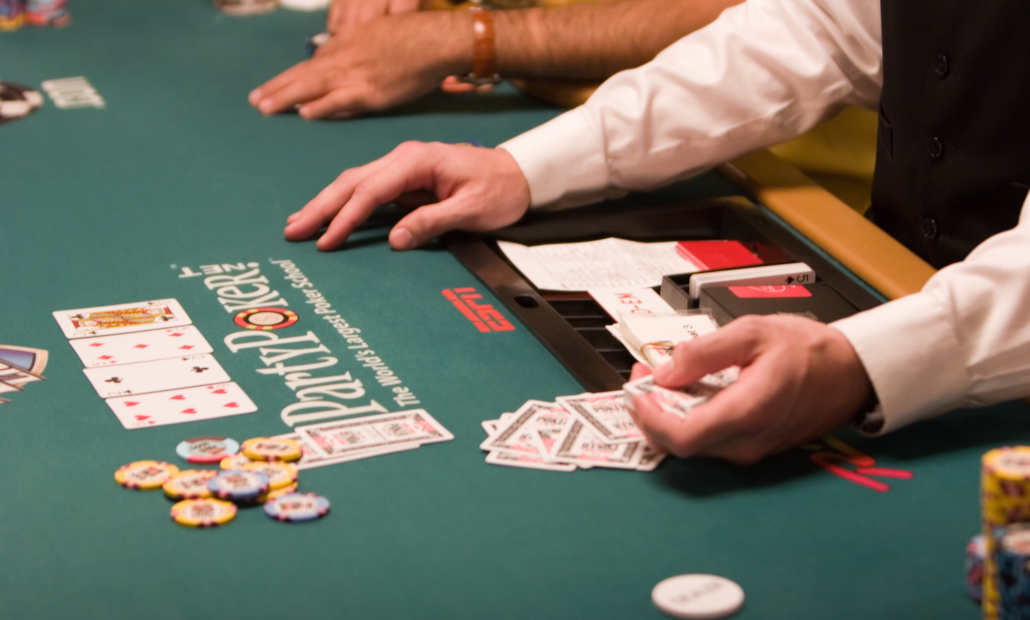
For many years, the tendency of many old-school tournament players like Barry Greenstein was to c-bet every flop after raising before the flop.
The strategy worked because players would mostly fold unless they connected heavily with the flop or would call with their draws and then fold the turn.
However, modern tournament players are much better at poker, and many of them will punish you if you c-bet too much.
This does not mean you should not be c-betting at all. Rather, you should construct your c-bet poker tournament strategy a bit differently.
Instead of looking at the hand you have, look at the board texture and how yours and your opponent’s supposed range connect with that board.
As an early position raiser, you will have a hard time if you c-bet a lot on boards like 9♥7♣6♣, as such boards will typically hit your opponents’ defending ranges a lot more than they will hit your range.
Conversely, you should not forget to c-bet on boards that heavily hit your range, even when you have some of the hands that actually didn’t connect.
For example, holding 9♥8♥, you should still c-bet on the A♥K♦J♦ board, as the defender will be forced to fold a big chunk of their range that didn’t connect in any way.
Another solid tournament poker tip I can give you is to c-bet smaller on boards that have few drawing options on them and bigger on draw-heavy boards. Such bets will best achieve their desired effects.
Tournament Tip #5 – Consider the Future Streets
Playing poker hands street by street would be similar to playing chess one move at a time without considering future moves. It simply doesn’t work!
In building your poker tournament strategy, you will always want to consider how hands play out from preflop to river play.
Each time you make a c-bet on the flop, you should consider the implications of that bet. How will you react if your opponent raises? What turn cards will be good candidates to bet on? Should you check the turn for pot control?
All of these questions are something you should be asking yourself before you even put those first chips into the pot.
By always staying one step ahead and thinking about future streets, you will have an advantage over opponents who only think about the current betting street.
The best tournament players in the world plan out their river bluffs on the flop and think about how to size their bets to get all the chips into the middle with the nuts before they make their first bet.
Poker Tournament Strategy Tip #6 – Play More Hands in Later Levels

As the tournament progresses, you will want to start to loosen up and play more hands, especially from the button and the cutoff.
With everyone’s stack dwindling, stealing the blinds and antes often will be a critical element of surviving in the tournament and building up your own chip stack.
On very low stacks (under 15 bb), you will want to learn the push fold charts and apply them religiously.
They alone will be enough to keep you afloat and bring you back to life in some events.
With larger stacks, you will still want to raise a lot and put a lot of pressure on weaker players and those looking to survive and not damage their middling stacks.
Be cautious about getting too involved with the chip leaders, and if you are the chip leaders, remember to keep the pedal to the metal and pounce on any weakness you spot.
Late-game in tournaments is all about pressure and getting people to fold their cards facing pressure, as well as surviving a few coin flips which you have very little control over.
Tournament Strategy Tip #7 – Use Money and Final Table Bubble to Your Advantage
I just talked about applying pressure late in poker tournaments. This is even more critical to keep in mind during the money bubble and the final table bubble.
As you approach the money, many people will start adjusting their poker tournament strategy and going into survival mode.
In such situations, it will benefit you greatly to have a big stack, as you will be able to put pressure on everyone else and push smaller stacks around with big raises and bets.
This is even more true as you approach the final table, when the bigger payouts start to kick in, as well as the very idea of playing at the final table, which can play mind tricks with some players.
Generally speaking, whenever a big pay jump is coming up, you should take advantage of players with smaller stacks. Put them at risk of busting out of the tournament with big bets or all-in shoves.
Poker MTT Tip #8 – Learn About ICM
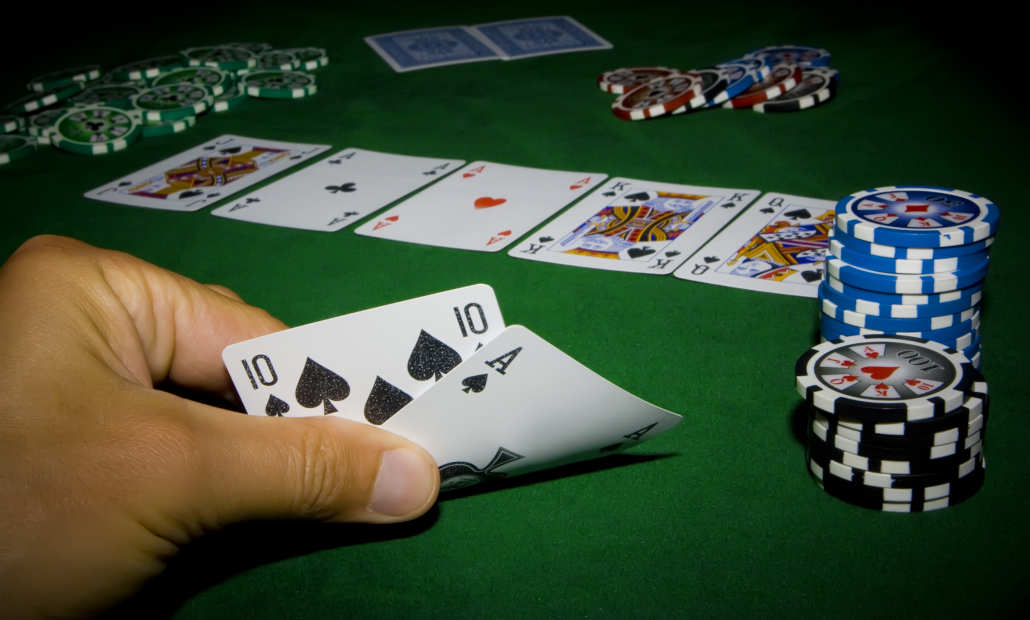
I just talked about how to adjust your poker tournament strategy when approaching big pay jumps as the big stack, but it’s also worth noting what to do as one of the smaller stacks.
The independent chip model (ICM) is a model that explains the relation between your chip stack and its actual monetary value.
The ICM is what dictates how you should play when pay jumps are involved.
The general idea behind ICM is that you should be more reluctant to call off your chips when a pay jump is imminent as long as there are smaller stacks still involved in the tournament.
When the difference between your stack and the smaller stack is drastic and pay jumps are big, you should make some very tight folds and be much less willing to bust out before them.
This is exactly the same logic that leads to the conclusion that you should bully everyone as the big stack. Players will make big laydowns to avoid being eliminated before the next pay jump.
MTT Strategy Tip #9 – Study Preflop Charts Regularly
One of the easiest ways to improve your tournament poker strategy is by studying various preflop charts with care and learning as many of them by heart as you can.
Preflop charts will give you premade solutions to things such as which hands you should raise from each position, which hands you should 3-bet against raises from various positions, which hands you should call with, etc.
By learning these charts by heart, you will begin to develop a strong baseline tournament game.
You can then adjust and change this strategy to adapt to the situation at your tournament table.
The more time you spend studying these relatively simple charts, the more command you will have over preflop play. This will put you in better postflop spots and generally allow you to win tournaments more often. If you want to master opening ranges, make sure to grab our free poker cheat sheet.
Poker Tournament Strategy Tip #10 – Play the Right Tournaments
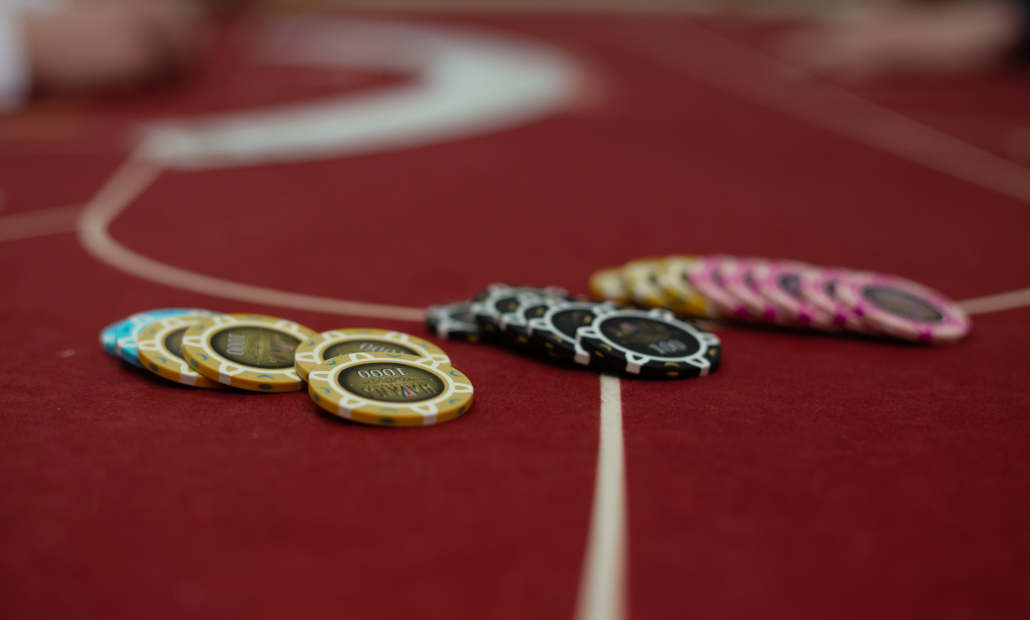
As the last of my tournament poker tips, I want to talk about table selection and playing in the right tournaments for you.
As a tournament poker player, you will want to try and play in games that attract more recreational players than professionals and those whose structure, start and end time, and other elements work well for you.
Table selection is an element of tournament poker strategy that many players neglect, but one that can give you a big edge over others.
If you play online tournaments, you should consider playing on real money poker apps that are not as popular among pros or playing big field tournaments with many recreational players and qualifiers.
In live poker, playing in bigger fields and avoiding tournaments with a large percentage of professional players will make things easier for you and increase your overall win rate and ROI percentage.
Poker Tournament Strategy – Final Takeaways
Tournaments are all about survival and playing every hand the best possible way, and that often means folding your cards and surviving to fight another day.
You can know all the tournament poker strategies, study poker tips or GTO solutions, and be a better player than everyone else in the field, but if you lack patience, you will not do well in tournament poker.
If you want to make it in tournament poker, learning the importance of patience and always reminding yourself not to make rash moves are crucial parts of the process.
Other than that, just follow our MTT poker tips outlined in this article, and you will have an edge over most of your opponents form the get-go.











